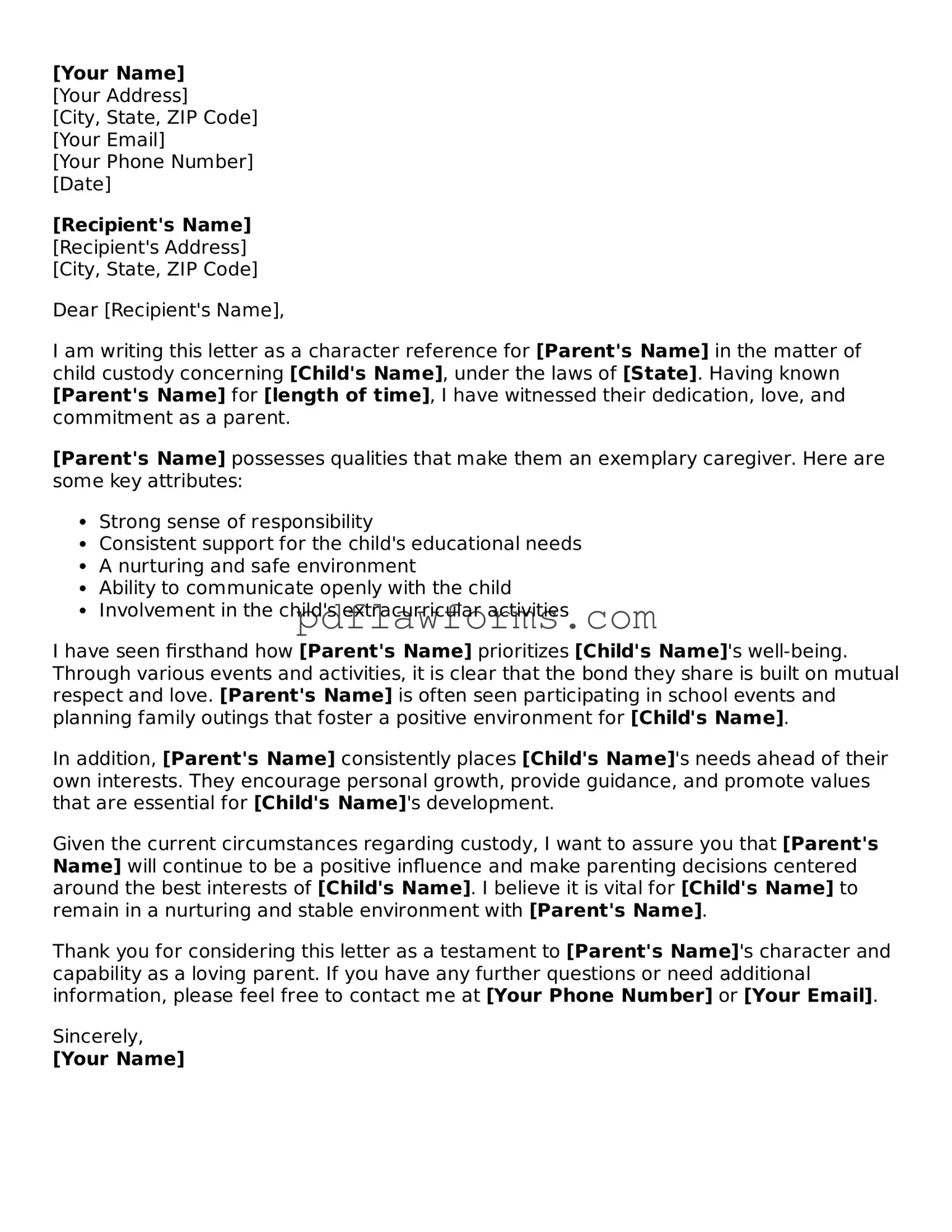Official Character Reference Letter for Child Custody Form
The Character Reference Letter for Child Custody form is a document that helps provide insight into a parent's character and parenting abilities. This letter can play a significant role in custody proceedings by offering a personal perspective from someone who knows the parent well. If you need to fill out this form, click the button below.
Make My Document Online

Official Character Reference Letter for Child Custody Form
Make My Document Online
You’re halfway through — finish the form
Edit and complete Character Reference Letter for Child Custody online, then download your file.
Make My Document Online
or
⇩ Character Reference Letter for Child Custody PDF
